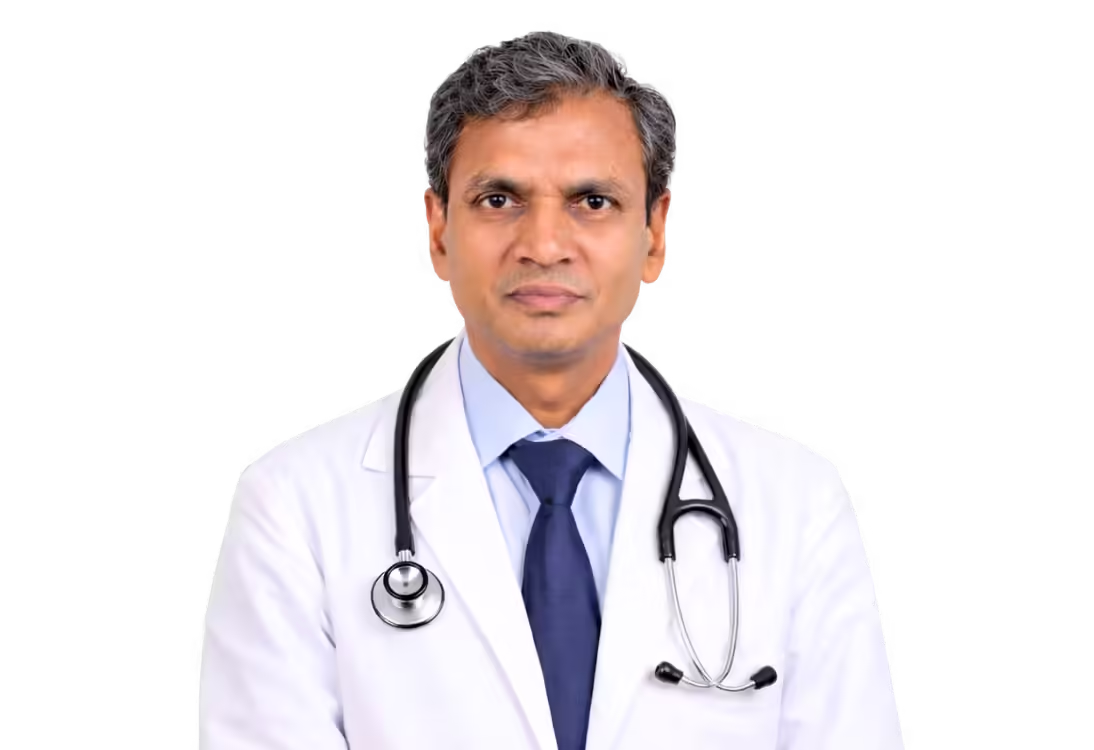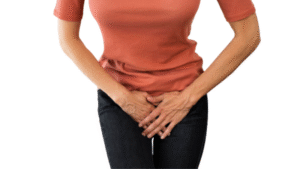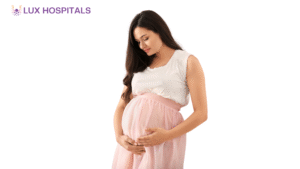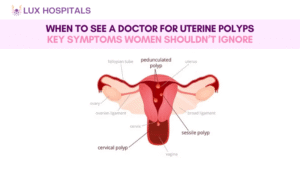What Causes Breast Tenderness? 10 Key Reasons Explained
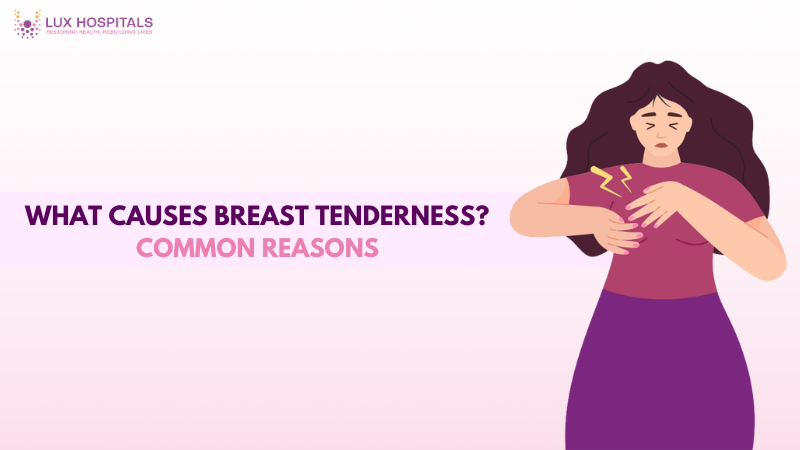
Many women at various periods of life feel breast tenderness, which is a common symptom. It can affect one or both breasts and range in intensity from little discomfort to severe pain. Understanding the possible reasons for breast discomfort might help you manage it more effectively and decide whether to consult a doctor. Below, we explore the most common reasons for breast tenderness and practical tips to reduce the discomfort.
Top 10 Common Reasons Behind Breast Tenderness
Breast tenderness is a frequent concern among women, often triggered by various physical, hormonal, or lifestyle factors. Understanding the root cause is essential for finding relief and knowing when to seek medical attention. Below, we explore the 10 most common reasons behind breast tenderness, helping you identify what might be affecting you and how to manage it effectively.
1. Hormonal Changes During Menstrual Cycle
The most frequent cause of breast tenderness is hormonal fluctuation during the menstrual cycle. Just before your period, rising levels of estrogen and progesterone cause the milk ducts and glands in your breast tissue to enlarge. This leads to swelling, heaviness, and tenderness in both breasts.
- Pain may start 1–2 weeks before menstruation and ease after it begins.
- It is usually symmetrical and feels dull or aching.
- OTC pain relievers and lifestyle changes like reducing salt intake may help.
2. Pregnancy-Related Tenderness
During early pregnancy, hormone levels surge, causing the breasts to become sore, sensitive, and heavy. One of the earliest indications of pregnancy may be breast pain. Sometimes, it appears even before a missed period.
- You may notice visible veins and darkened areolas.
- This tenderness often lasts through the first trimester.
- Wearing a soft, supportive bra can offer relief.
3. Breastfeeding and Engorgement
Nursing mothers commonly experience breast tenderness due to milk engorgement, clogged ducts, or infections. Engorgement is the result of large breasts, causing swelling, pressure, and discomfort.
- Feeding regularly and using cold compresses can reduce pain.
- If you develop a fever or redness, it might be mastitis.
- Seek medical help for infections to prevent complications.
4. Menopause and Hormone Replacement Therapy
As women enter menopause, hormone levels change dramatically, which can lead to breast tenderness. Women taking hormone replacement therapy (HRT) may also experience breast soreness.
- The tenderness may be irregular and less predictable than during menstruation.
- It may affect one or both breasts.
- Herbal remedies and reducing caffeine may help.
5. Fibrocystic Breast Changes
Fibrocystic breast condition causes the breasts to feel lumpy or rope-like and may lead to breast tenderness, especially before menstruation. These are benign changes and are influenced by hormonal cycles.
- You might notice fluctuating size and texture of breast lumps.
- Pain typically improves after your period.
- Cutting back on salt and coffee can help reduce discomfort.
6. Medications and Birth Control Pills
Certain medications, especially those that influence hormone levels, can lead to breast tenderness. These include birth control pills, hormone therapy, and fertility treatments.
- Some antidepressants can also cause breast discomfort.
- Always read the side effects of medication and consult your doctor.
- Adjusting the dose or switching medications may relieve symptoms.
7. Poorly Fitting Bras
Wearing a bra that doesn’t provide adequate support can contribute to breast tenderness. Tight straps, underwires, or incorrect sizing may cause pressure and pain in the breast tissue.
- Get professionally fitted if you experience recurring discomfort.
- Choose bras with wide straps and soft fabric.
- Avoid restrictive clothing that irritates the chest area.
8. Breast Injuries or Trauma
A sudden impact on the chest, such as during sports or a fall, can cause bruising and breast tenderness. Even minor trauma can lead to swelling and localized pain.
- Use ice packs to reduce swelling after injury.
- Avoid heavy lifting until healing occurs.
- If a lump appears after an injury, consult a doctor.
9. Excess Caffeine Consumption
High caffeine intake has been linked to breast tenderness, particularly in women with fibrocystic breasts. Caffeine may cause blood vessels to dilate, contributing to pain and swelling.
- Try reducing coffee, tea, and cola intake for a few weeks.
- Monitor symptoms for any improvement.
- Opt for herbal teas or water instead.
10. Breast Cancer (Rare but Possible)
Though uncommon, breast tenderness can occasionally be a sign of breast cancer. Unlike hormonal pain, cancer-related pain is usually localized and may come with other symptoms like lumps, nipple discharge, or skin changes.
- Persistent, one-sided pain should be evaluated.
- Schedule regular mammograms for early detection.
- Always consult your healthcare provider if concerned.
Conclusion
Breast tenderness is a common but manageable condition that can be brought on by several things, including pregnancy, hormone changes, drugs, or even lifestyle choices. Even while the majority of cases are not serious, it’s important to know your body and keep an eye out for any changes. The best course of action is to seek medical help if tenderness becomes severe, frequent, or accompanied by other symptoms.
Frequently Asked Questions
Yes, breast tenderness is one of the earliest signs of pregnancy. It occurs due to rising hormone levels, such as estrogen and progesterone. The tenderness usually appears within the first few weeks after conception.
Breast tenderness caused by menstruation often starts one to two weeks before your period. It usually subsides once your period begins or ends. Lifestyle changes and OTC medications may ease discomfort.
Yes, though it's less common, many postmenopausal women experience breast tenderness, especially if they are on hormone therapy. Fluctuating estrogen levels can still influence breast tissue. Discuss persistent pain with your doctor.
While most hormone-related breast tenderness affects both breasts, trauma, infections, or cancer can cause pain in one breast. Localized pain should not be ignored. Should the pain persist, seek medical advice.
Wearing a supportive bra, using warm or cold compresses, reducing caffeine, and managing stress can help. Evening primrose oil and flaxseeds are also popular remedies. Regular exercise and hydration also improve symptoms.
Persistent breast tenderness that doesn't resolve after a menstrual cycle or is accompanied by a lump or other symptoms should be checked by a doctor. It could be hormonal or something more serious. Early diagnosis ensures better outcomes.









